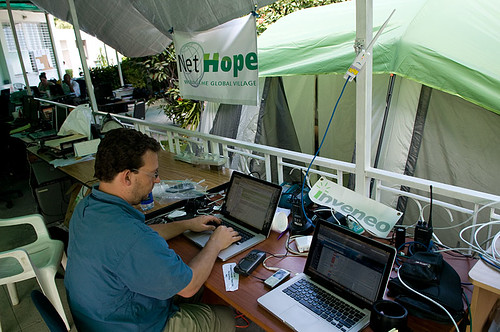You can now play an active role in resolving the Israeli-Palestinian conflict as either the Israeli Prime Minister, or the Palestinian President, straight from your living room.
Will you put pressure on the United States to publicly condemn your enemy? Will you withdraw your settlements from the Gaza Strip? Your decisions will render a live computer generated response. Similar to the importance of real life, timely decisions in the Middle East, your decision will affect if the entire region will be at peace or explode in violence.
”] This is the aim of the “serious game” called the Peacemaker developed by Asi Burak, and co-founder of GamesforChange.org.
This is the aim of the “serious game” called the Peacemaker developed by Asi Burak, and co-founder of GamesforChange.org.
These “Serious Games” are burgeoning agents for social change being used in the development world by advocates, nonprofit groups, and technically keen academics searching for new ways to reach young people.
The main idea is the player becomes immersed in a real-world situation where human rights, economics, public policy, poverty, global conflict, news, and politics are some issues confronted in the games.
The player deliberates and makes conscious choices while they play and those actions either benefits one side or harms another, making a complete resolution difficult.
Objectively, the player can play as many times as they need to resolve the issue to win the game.
As Jarmo Petäjäaho from Finland, states in a review after playing Peacemaker, “Making the policy decisions in the game and pondering the possible ramifications on all parties really makes the issues hit home and stay with you. It is a wonderfully efficient and fun way to study the real world.”
That is the true beauty behind all the efforts: games are innately helpful in simplifying large, complex systems and teaching them to people.
Two weeks ago Tech@State had a two-day Serious Games conference where game creators, technology executives, and social entrepreneurs, exchanged ideas and experiences on the best mechanics of games for social change.
creators, technology executives, and social entrepreneurs, exchanged ideas and experiences on the best mechanics of games for social change.
While most of the games focused on issues of international affairs, public policy and diplomacy, one group focused on how to leverage this educational tool for developing nations lacking computers.
Playpower, created by a group of programmers and researchers, is a great, simple educational tool to bring video gaming to developing nations.
By constructing a $10 TV-compatible computers out of discarded keyboards and outfitting them with cartridge-based educational games, the Playpower team aims to make learning games affordable for “the other 90%.”
The Serious Games shown at the conference is rowing as a tool used for social change, but no one knows how sustainable the method may be.
USAID is interesting in exploring the effects of the gaming venture on development.
An Innovations for Youth Capacity & Engagement (IYCE) game is currently in development with the Democracy, Conflict and Humanitarian Assistance (DCHA) Bureau in conjunction with Nethope. The game targets resolving youth and social issues in Jordan.










































